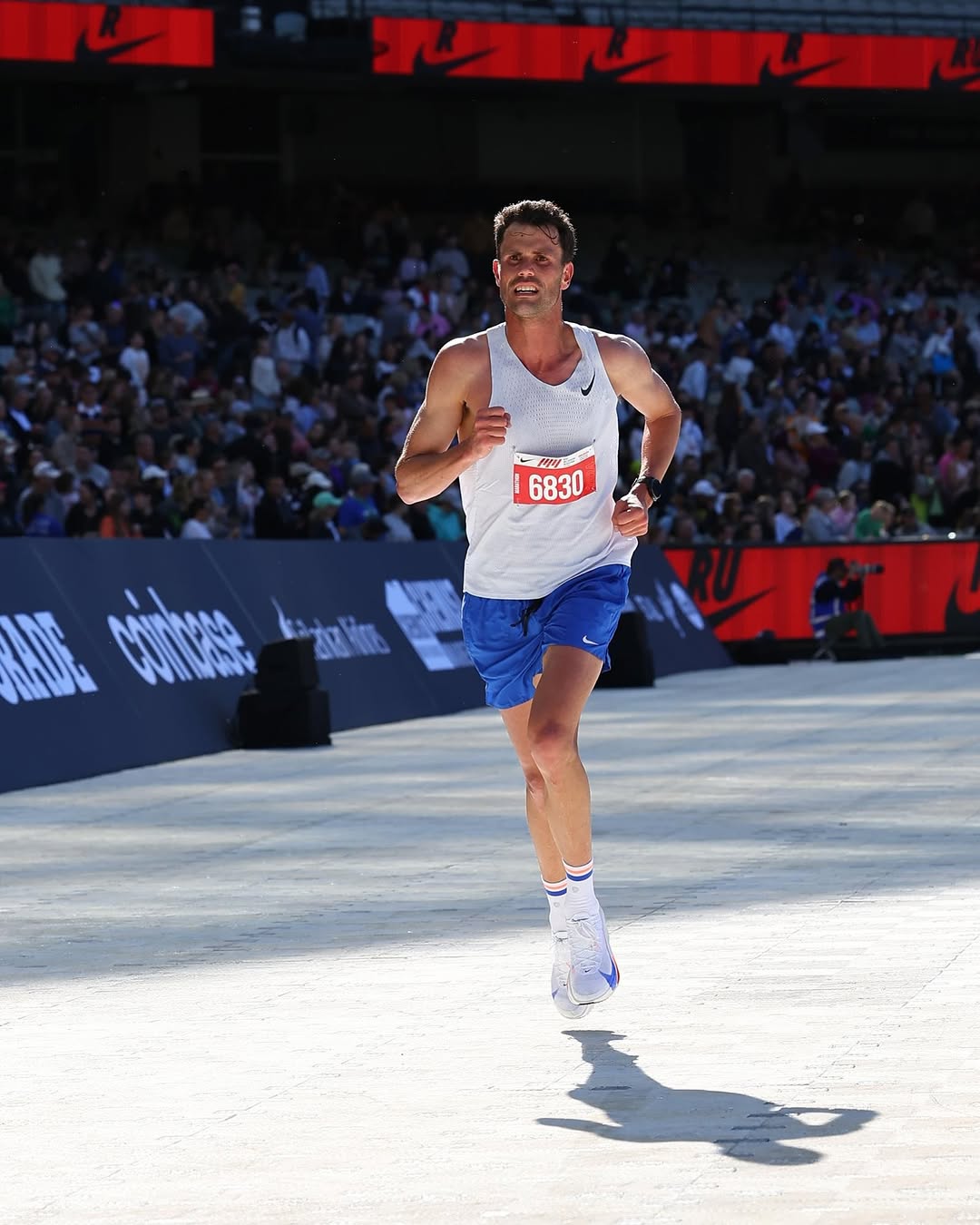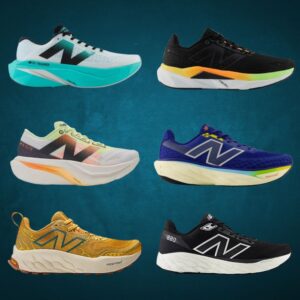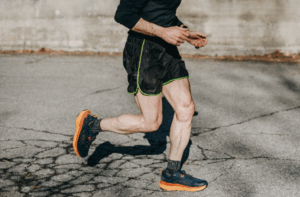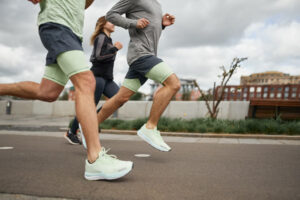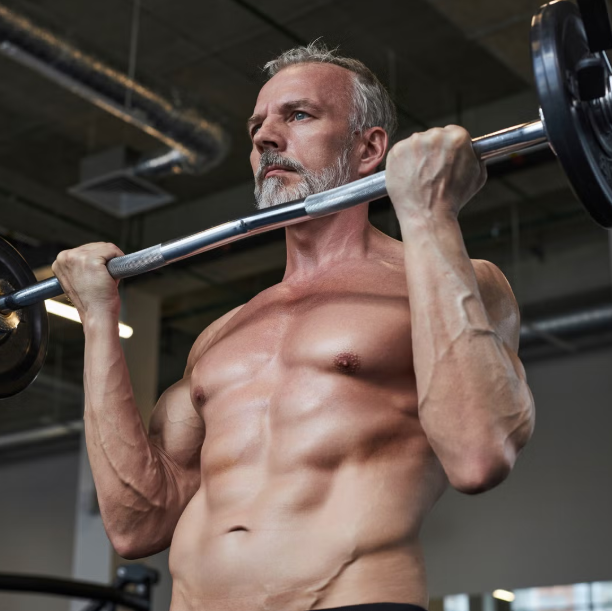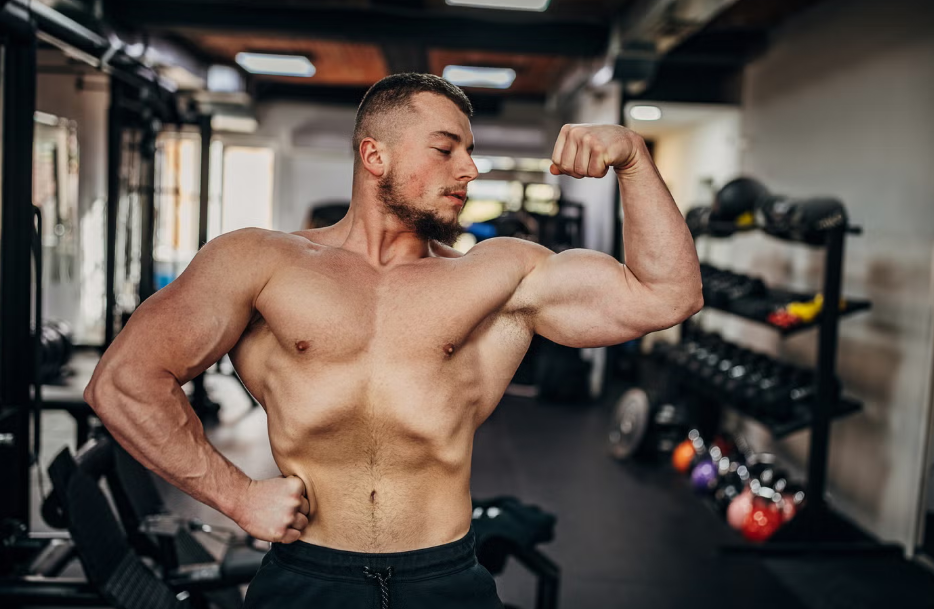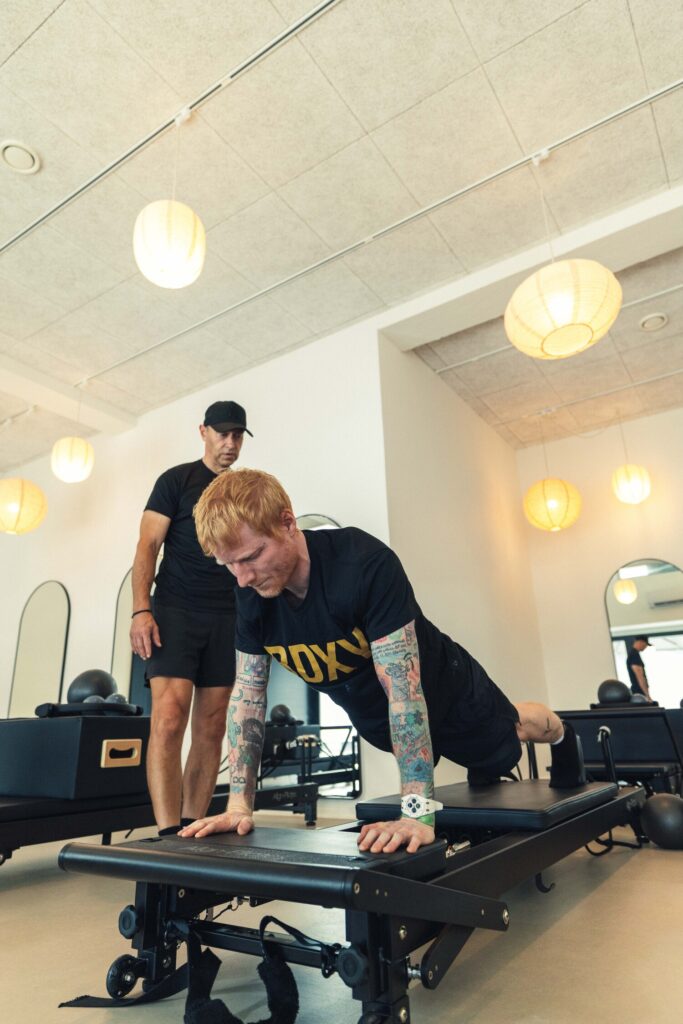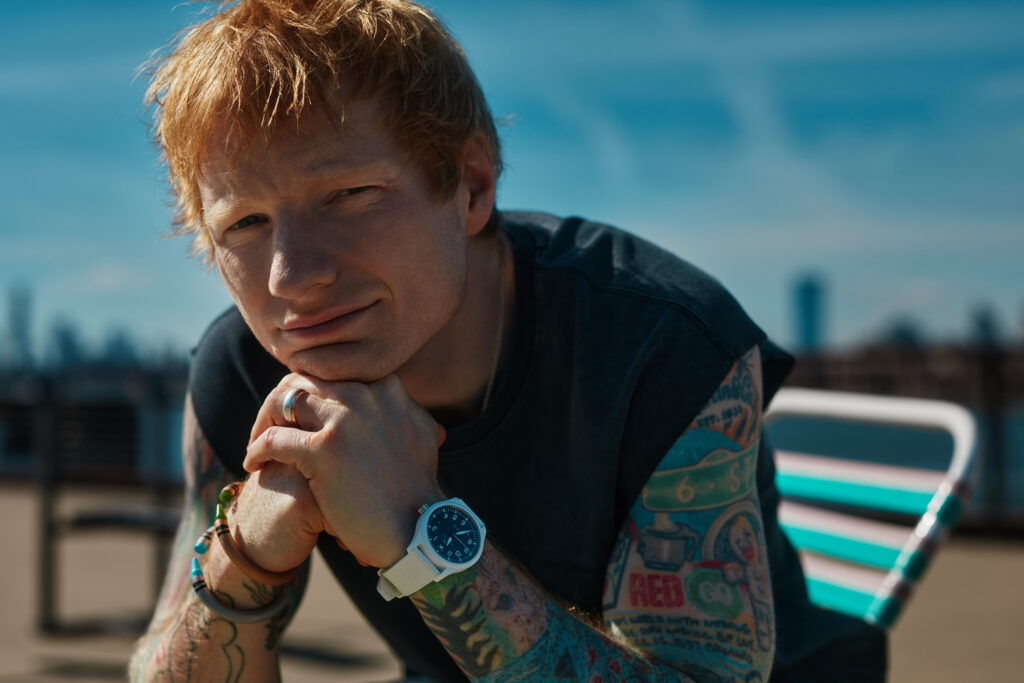IS RUNNING A cult? It can feel like it these days, amid an unprecedented running boom and the explosion of run clubs. It’s easy to see why the pastime has taken off. Few pursuits are as accessible and few equal running’s capacity to shape your life in so many positive ways. Yet for the truly dedicated runner, there will be moments of despair and periods when it challenges you. Running takes you on an emotional journey. It’s why, for many, it’s more than just a pastime.
Few know the glorious highs and sometimes heavy emotional toll running can exact quite like Jeff Riseley, a four-time Olympian in the 800 and 1500m and now coach at Momentum Running and head of athletics at Melbourne Girls Grammar. “I’m now a washed-up runner and I run a lot less than I used to, but I still love the feeling that running gives me,” says Riseley, whose record for the 1000m of 2:16:09, which he set in 2014, still stands. “It’s ability to clear your mind and escape from the sometimes chaotic and fast paced feeling of life. As well as the significant role it plays in my mental and physical health. If I’m running 4-5 times a week and in a good routine, I know that I have a good platform to be successful in other areas of my life.”
Riseley’s glittering career had its share of both joy and heartache and he offers a clear-eyed view of the challenges of running at the elite level. “The public at home see all the highlights and personal triumph, but for me I had some really challenging experiences,” says the 38-year-old of his Olympic experiences. “Every athlete brings high expectations into the Games and I was sick in Beijing, carried a bad injury into London and underperformed in Rio and was very hard on myself.”
So hard, in fact, that Riseley would take a year off in 2017 to manage his mental health, travelling to Africa to “try and find the joy in the small things in life”. He describes making it all the way back to the top for the Tokyo Olympics, where he reached the semi-finals in the 800m, as his proudest achievement.
“It was something that I was incredibly proud of because of the challenges I went through and the persistence and resilience I showed to never give up,” says Riseley. “It was really special to be able to retire from the sport on my own terms and having one last Olympic experience where I could compete against the best in the world and feel like I belonged. Something not all athletes get.”
Ahead of the Nike Melbourne Marathon Festival on October 12, Riseley looks back on his career and offers lessons that could make your running journey more satisfying and meaningful.
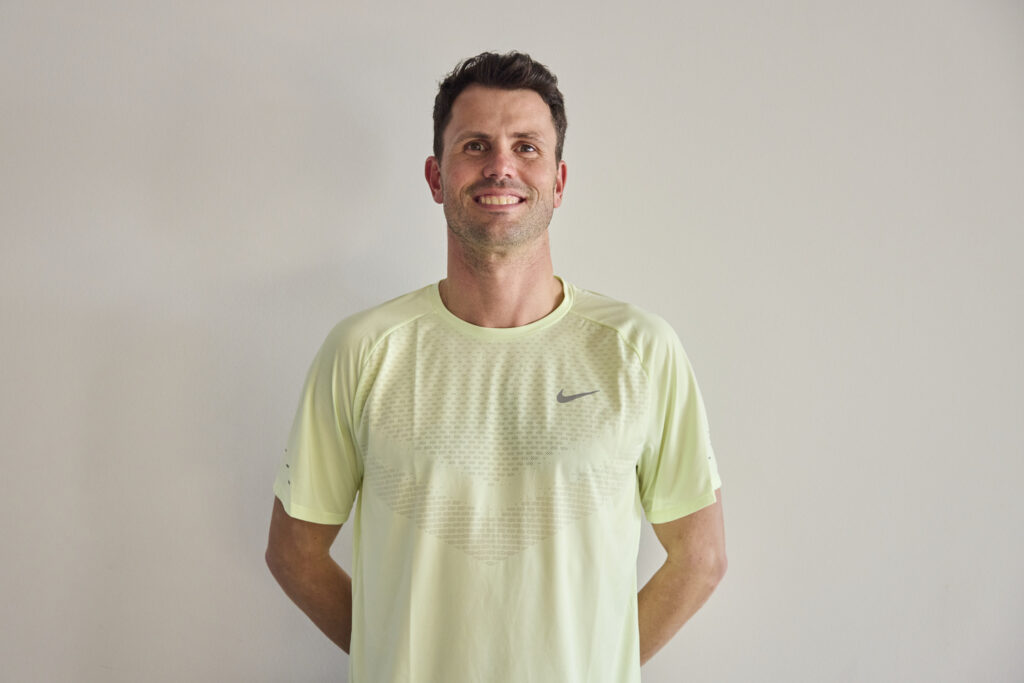
Men’s Health: Tell us about your childhood and how you got into running?
Jeff Riseley: I moved schools in Grade 3 and my mum enrolled me into Little Athletics as a chance to meet new kids at the new school I was attending. The rest is history.
MH: As a kid, you took a break and then came back to running. Why was that? What brought you back?
JR: I developed late and didn’t have my growth spurt until Year 11/12. And because of this I really struggled in my early high school years and got left behind. I always loved the feeling running gave me and I was lucky to have a great teacher and athletics coach at school who kept encouraging me and helped me to have a breakthrough in Year 12, where I made my first Victorian team.
MH: When did you realise you might be an Olympic prospect?
JR: I was pretty naïve as a child and I was from a simple family that always supported the fun and benefit of sport so I never even thought of the Olympics as a possibility. When I left school I played a season of AFL in 2005 and then it wasn’t until I watched the Commonwealth Games in 2006 in Melbourne and watched Craig Mottram in the 5km in the stadium that I thought I want to try and do that. I increased my training and started having success and it grew from there.
MH: Are you surprised your 1000m record is still standing?
JR: A little. However, it’s not an often-run event and it’s a difficult event to get the pace and tactics right, which is why I think it is still standing. However, I think Peter Bol could run 2.14 in the right race. I believe it is the only standing record not run in the new super spikes.
MH: What kind of runner were you – pacesetter, kick-finisher?
JR: I always loved sitting just off the pace and kicking home.
MH: Do you have any regrets about your career?
JR: A lot. I wish I’d managed my body and injuries better early in my career and had more consistency in training to reach what I thought was my potential. I’m satisfied and proud of my career but there’s always the what ifs that flash through your mind.
MH: What advice would you give people who want to get into running but think it’s too hard?
JR: Running is hard for everyone, especially at the beginning. But once you push through that first month, you start to feel stronger with every run. That’s when it starts to get fun. The key is consistency, a gradual build up in your training, and setting goals that genuinely excite you. Celebrate the small wins along the way, because they add up. What I’ve always loved most about running is the process of becoming just a little better each day.
I have days where I’m tired and struggle to even get out the door, just like anyone else. I think we can all take inspiration from Nike’s “Why do it’ campaign that celebrates the everyday decision to show up, rather than focusing solely on elite achievement.
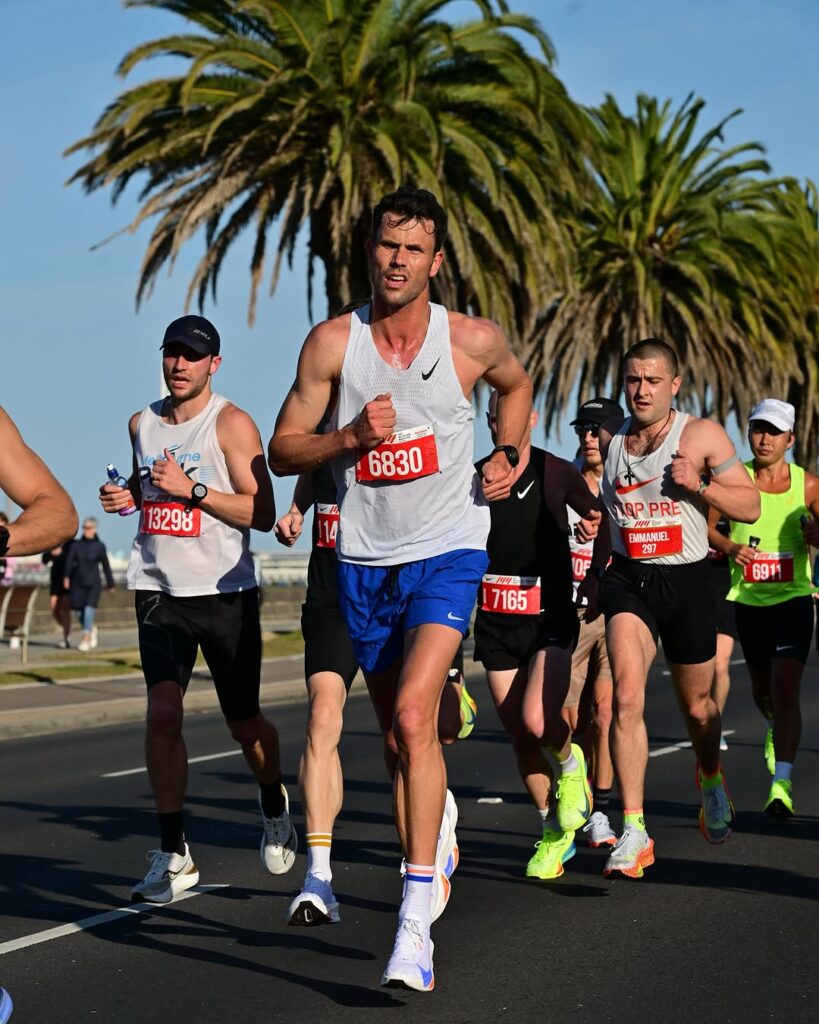
MH: What advice would you have for someone tackling their first half or full marathon?
JR: The most important thing is to have consistent and gradual progression of loads. The Nike Run Club app is not only a great resource for those starting out to help plan and structure their training, it can also help more experienced runners level up their training program.
There are a number of different programs to get started, from a basic running plan (4 weeks) all the way up to 12-week half marathon training plans and 18-week marathon plans. It’s the perfect place to start.
MH: What can people do in their training to go from an average runner to a good one?
JR: The biggest factor in improving as a runner is consistent, well-structured training. There are no shortcuts. Progress comes from showing up, building gradually, and staying patient. But as a coach, I’ve also seen how the right gear can make a big impact, not only physically, but mentally.
One of my favourite things is when a young athlete steps into a pair of Nike Vaporflys for the first time and suddenly crushes a personal best. The look on their face and the sense of achievement of ‘I can do this’. It’s not just the technology, it’s the confidence that comes with feeling fast and supported. And that’s why finding the right shoe matters more than most people think.
Nike’s 9Box framework gives runners real choice based on how they run. Whether that’s maximum cushioning with the Vomero, responsive cushioning with the Pegasus, or support with the Structure.
For me, it’s the Nike Vomero. It’s the perfect choice for those longer runs or recovery days when maximum cushioning matters most. It keeps you feeling fresh, supported, and ready to come back the next day.
MH: What would you advise someone stuck in a running rut?
JR: I think the first thing is to be kind to yourself and understand that even the world’s best athletes go through these moments in their training. It’s amazing what a week off or a reduction in training load can do from a recovery perspective. And I think it’s also important to get back in touch with those things that bring you joy and balance in life.
Then it’s about finding a goal that excites you and making small steps towards them. The feeling of progress is powerful, no matter how small.
MH: What do you enjoy about coaching runners?
JR: I love the life lessons of discipline, motivation and resilience that athletes learn from diving deep into running. And then being able to have a significant impact on young athletes’ lives. I probably consider myself more as a mentor than a coach. My happy place is being at the track calling splits in for the session and showing up for athletes in the same way they show up each session and give their all.
The Nike Melbourne Marathon Festival is on October 12.




